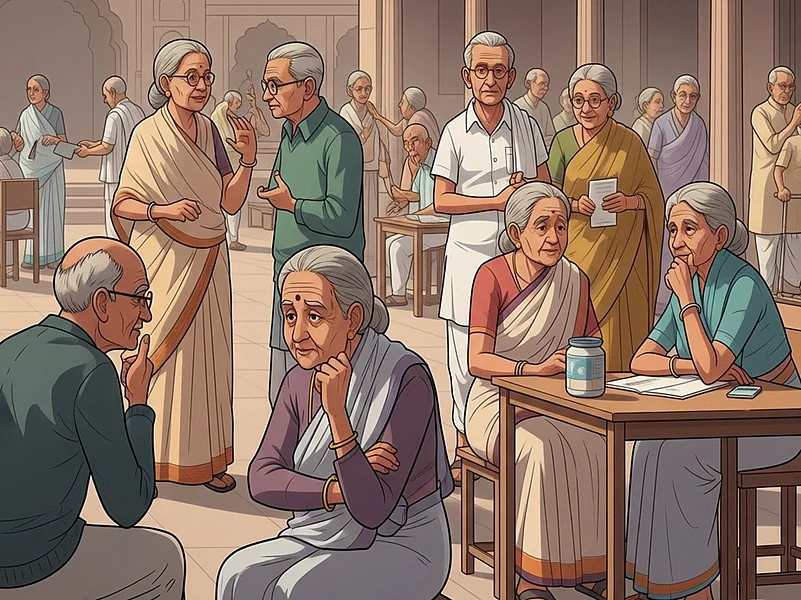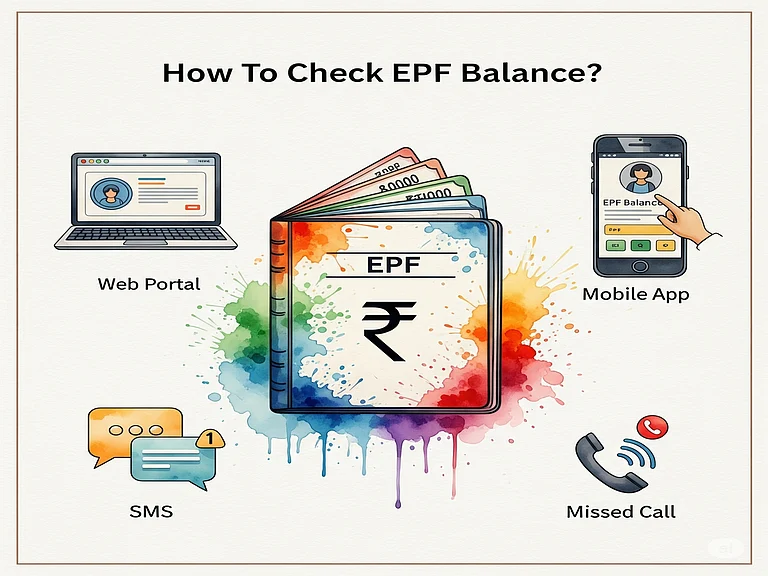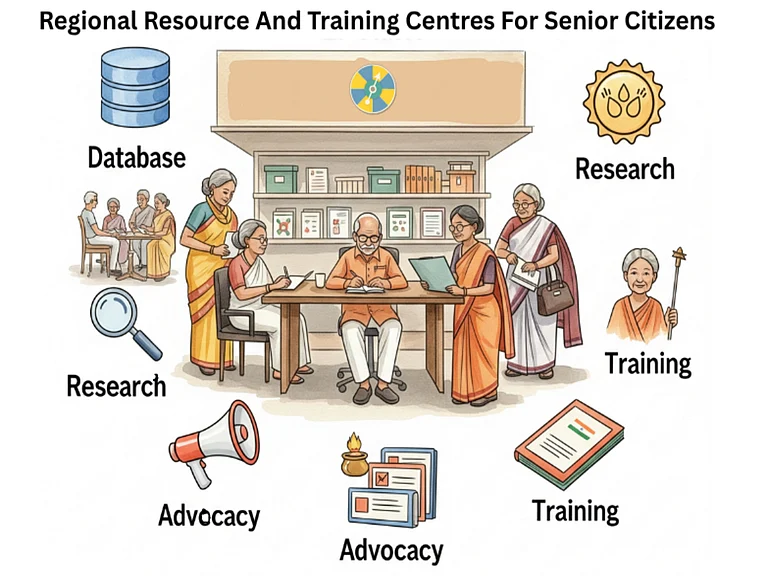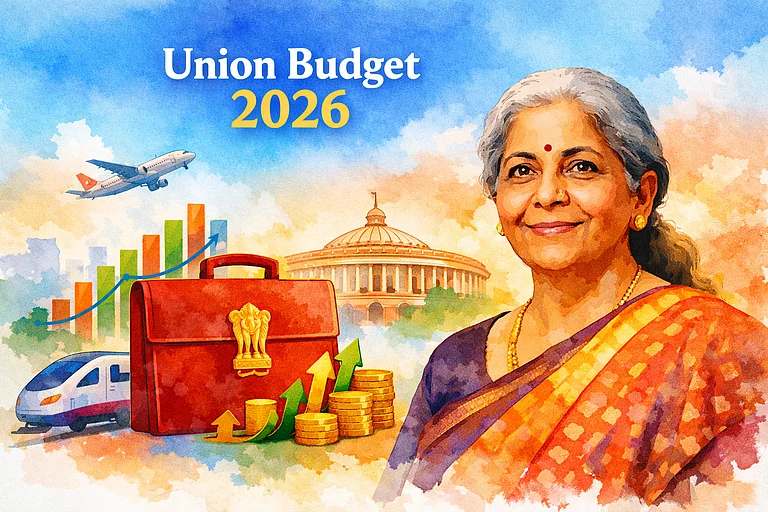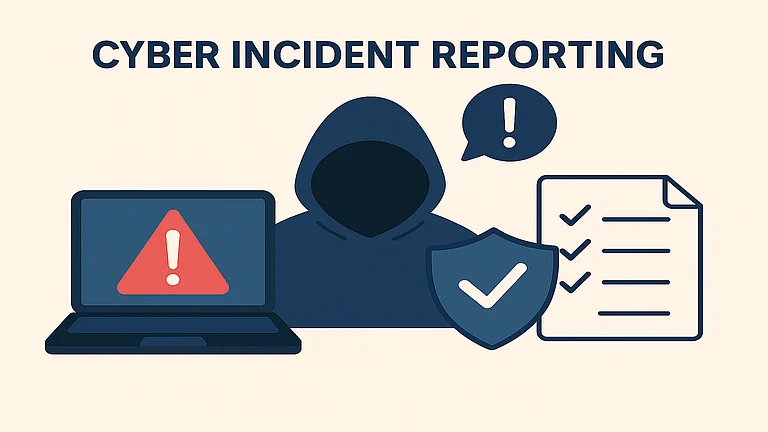Elders in India are aware of government schemes, but only moderately. According to a recent report by HelpAge India, 68 per cent of elders are aware of government monthly pension schemes, and 63 per cent know about ration and housing aid schemes. However, only 35 per cent know about the legal protections available to them, and only 31 per cent are aware of the elder emergency helpline number and digital literacy training programmes. The other programmes that are widely recognised by the elders are healthcare schemes ( 58 per cent) and travel benefits (47 per cent). The report collected responses from 5,798 people (30 per cent elderly and 70 per cent youth).
Notably, 16 per cent of the elderly are unaware of government schemes. Around 61 per cent feel that the government efforts are sufficient, whereas 23 per cent feel the contrary.
The report suggests that for people aged 80 and above, family remains the main support system (86 per cent). Friends and neighbours come next in providing eldercare support (45 per cent), and it is prominent among educated seniors or those living alone.
Around one-fourth of the respondents use government or non-government organisation (NGO) services, and 11 per cent use paid caregivers. The study underscores that only two per cent of the elderly are fully self-reliant.
Elders’ Expectations
However, the elderly do have certain expectations from the younger generation. The primary expectation is for companionship and spending quality time together. Other expectations include emotional support, patience, financial aid, and digital literacy support. Elders living in non-metro cities have higher expectations from the youth compared to those living in urban areas. The study shows that elderly individuals in vulnerable situations value emotional support and companionship more than monetary support.
Family, Society, And State As Caregiver
Both the elderly and the youth view family (children, grandchildren, spouses, and other relatives) as their primary support system. It reflects the deep-rooted cultural norms of family-led elder care. However, the youth are open and inclined towards formal care options such as paid caregivers, domestic help, old age homes or assisted living, and government or community programmes.
It indicates the potential to develop a collective care model. Both cohorts view society and old-age homes as secondary caretakers.
Elders who are living alone or with spouse value the idea of self-care more than those living in joint families.
Educational Initiatives And Youth Involvement In The Lives Of Elderly
Young members living in joint families and non-metro cities support school or college-based intergenerational programs. Around 81 per cent of the youth and 78 per cent of the elders support such educational initiatives.
Around 76 per cent of the youth acknowledge their role in the lives of the elderly. Educated youth (students (83 per cent) and post-graduates (92 per cent)) are more willing. Besides, young members in joint families or those who frequently interact with elders are strongly involved.
Volunteering Inclination Index
When it comes to volunteering activities, 82 per cent of the youth prefer spending time with lonely elders, followed by helping them with errands, visiting hospitals, and teaching digital skills.
The index ranks volunteerism inclination on a scale of 100, taking into account different factors (youth intent, perceived responsibility, diversity of interest, and awareness about the role in society). The index shows a national score of 53.38. According to the study, it reflects the scope of volunteering. It reveals that young people who are educated, self-employed, or living in joint families or non-metro cities are more likely to volunteer compared to those from economically disadvantaged backgrounds.
Factors For A Good Life
For both cohorts, the important factors for a good life include financial security, good physical and mental health, respect, social connection, independence in daily life, access to healthcare services, and engagement in purposeful activities.
In short, the report highlights that family remains the primary source of support for the elderly, with the involvement of youth, community, and government or other institutions. Awareness among elders about government schemes is moderate, indicating a need for improved outreach regarding legal protection, access to elderly helpline, and digital inclusion. The volunteerism index shows areas that need intervention, particularly among youth from economically disadvantaged backgrounds or those with limited experience in elder care.
As the elderly population in India continues to grow, higher youth participation in elder care, their proximity to them, and conducive policies can help build a strong and resilient eldercare support system.


